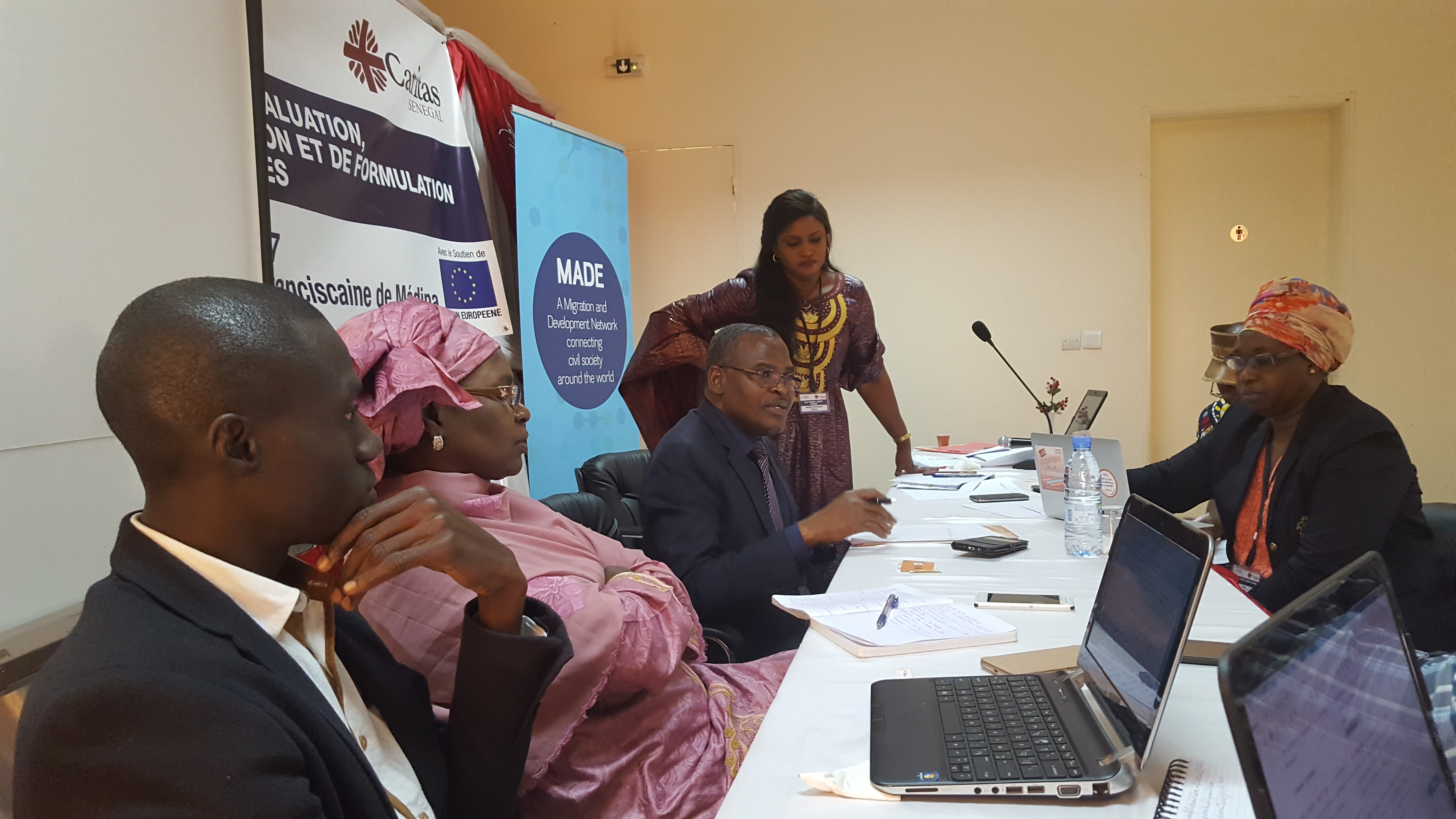
On February 27 and 28 MADE Africa organized a conference in Dakar, Senegal dedicated to "Evaluation, capitalization and formulation of perspectives". Main topics were the Valletta process along with European migration policy in and between Africa as well as the future of MADE Africa. MADE Africa coordinator Caritas Senegal welcomed over 30 participants from 10 different countries, representatives from ECOWAS and the Senegalese government and also Jeroen Corduwener from the MADE Network Coordinating Office in Brussels. The conference raised media attention by 2 television stations and 3 radio stations from Dakar,
Main conclusion on the Valetta Action plan was that civil society severely criticized the European Union on its politics to send back migrants to Africa and negotiate agreements with individual African countries (e.g. Niger) on the reduction of migration. In West and Central Africa, countries organized in the ECOWAS zone, have agreed on free movement of people (comparable with the Schengen zone in Europe). The agreements with individual African countries to collaborate with the EU – in change of development aid – affects the freedom of movement.
As an example, Civil society organizations presented during the conference the findings of a mission to the Agadez reception center (managed by IOM). According to these findings migrants rights are violated in and because of this center. Women and children and vulnerable people are not well protected. Even worse: migrants in the center are forced to be returned to their countries of origin, although Agadez is in the ECOWAS region. Civil society organizations also blamed their own African governments because they fail in adapting national migration policies and laws.
In their evaluation of the 3 years of MADE Africa, participants concluded that the past 3 years were challenging, but also successful. Since Caritas Senegal succeeded in securing new funding, MADE Africa will continue in the future, but with the priority zones Central, North and West Africa.